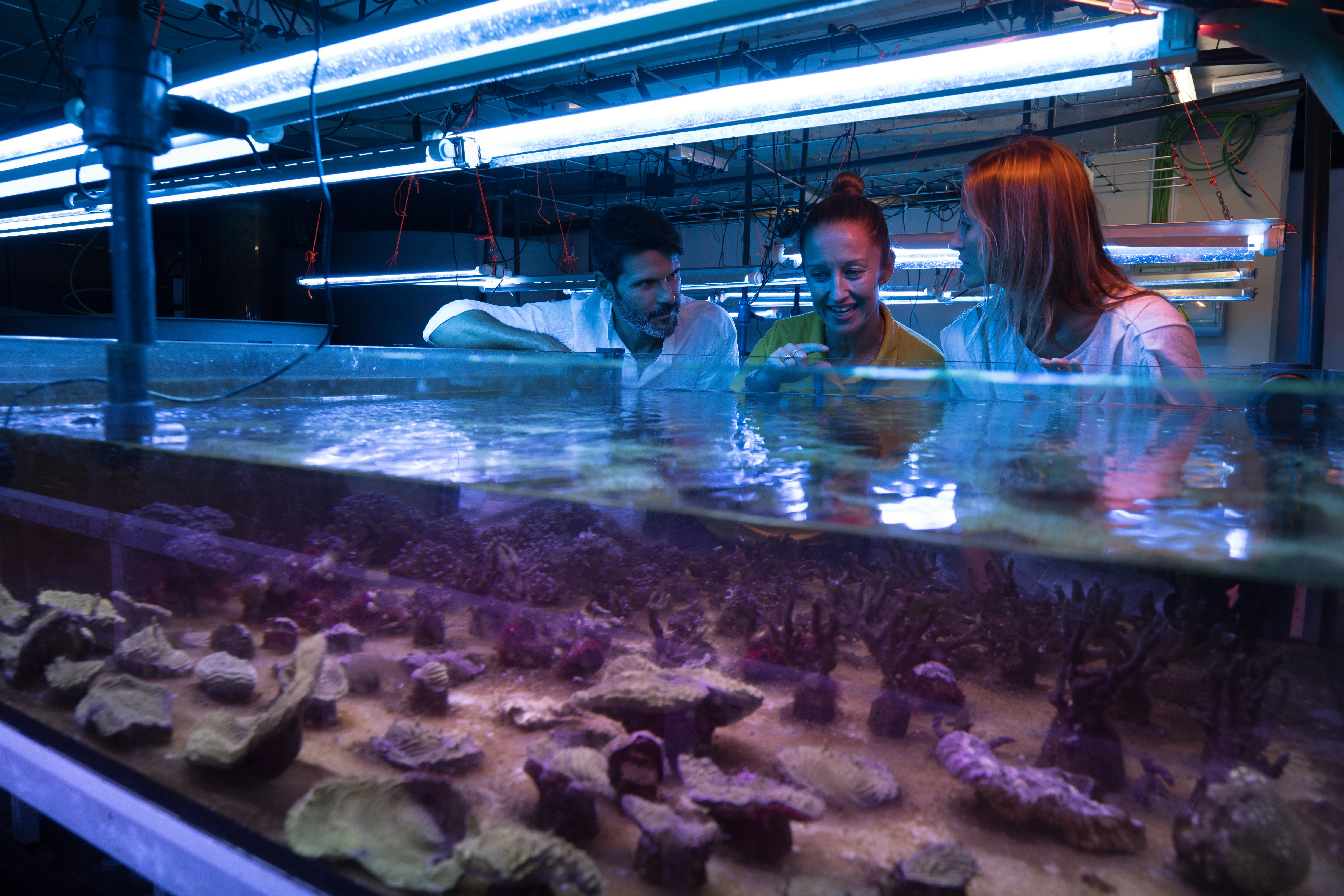Have you ever wondered what goes on behind the scenes at an aquarium? Thanks to our exclusive Backstage Tour, you’ll have the chance to discover the unknown side of Palma Aquarium, the place where our magnificent technical team and volunteers work each day to conserve the marine world. Our Ocean Experts will accompany you on this experience behind the scenes, offering you the opportunity to discover the more human side to our work, aimed at raising awareness of the need to care for our seas and their inhabitants and offering an insight into our marine wildlife conservation and recovery projects.
-
Mediterranean and Tropical Quarantine
First stop on this thrilling experience is the Mediterranean quarantine. Here, you’ll learn about the processes carried out with animals that require some form of acclimatisation or treatment.
-
Nursehound shark project
You will also have the chance to discover in depth our
Petits taurons – Acció Stellaris project. Thanks to this initiative, in 2023 we were able to breed 32 nursehound sharks – a small species of Mediterranean shark – before releasing them into their natural habitat.
View video of the release into the sea.
-
Plankton Lab
Next stop on the tour is the heart of our entire operation, the Plankton Lab. Plankton is made up of a group of microorganisms (algae, protozoa, larvae, etc.) and is essential for aquatic ecosystems because, although it consists of just tiny organisms and plants, it is the basis of the food chain for many species and also contributes to the production of oxygen and climate regulation. Because of its vital role in aquatic ecosystems, plankton is considered ‘the centre of life’. Without plankton, biological biodiversity and the fundamental processes that sustain life on earth could not be maintained.
-
Seahorse project
During the tour, you will also be able to learn about the
Cavallets de mar Balears project. This project, which began in 2022, aims to facilitate the breeding of Mediterranean seahorses, which are currently in an extremely vulnerable situation, in a controlled artificial environment for their later release into their natural habitat. View presentation video
https://www.youtube.com/watch?v=0YJhxfwHUFM
-
Coral nursery
The next point of interest on the Backstage tour is our coral nursery. Here, you will be able to observe the day-to-day work of our team of curators and carers as they go about feeding and ensuring the corals are in optimum conditions at all times. Did you know that at Palma Aquarium you can visit a living coral exhibition unlike any other in the world? You can also discover a host of fascinating facts about them: for example, contrary to what many people believe, they are actually animals, not plants!
-
Marine wildlife recovery and rescue centre
Last stop on this intriguing and enriching adventure is the
Marine wildlife recovery and rescue centre, which is managed by the
Palma Aquarium Foundation, and which holds official recognition as the Balearic Islands’ Marine Wildlife Recovery Centre. One of the key aspects of the centre’s work is to provide injured and/or sick animals that reach the coast with veterinary assistance and to make all possible efforts to ensure their recovery and later release back into their natural environment.
In 2023, assistance was provided for 18 cetaceans (9 on Mallorca, 3 on Menorca and 6 on Ibiza and Formentera); 11 sharks (4 on Mallorca, 4 on Menorca and 3 on Ibiza and Formentera); and 83 sea turtles (49 on Mallorca, 14 on Menorca and 20 on Ibiza and Formentera).
Now you can help us improve the health of our oceans, and not just from your home, as part of the
Palma Aquarium admission fee is donated to the Palma Aquarium Foundation and its amazing work in the areas of marine conservation, education and dissemination.
We’ll see you at Palma Aquarium and remember, you too can contribute to building a better future. Book your Backstage Tour!


